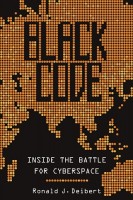Andrea Castillo and I have a new paper out from the Mercatus Center entitled “Why the Cybersecurity Framework Will Make Us Less Secure.” We contrast emergent, decentralized, dynamic provision of security with centralized, technocratic cybersecurity plans. Money quote:
The Cybersecurity Framework attempts to promote the outcomes of dynamic cybersecurity provision without the critical incentives, experimentation, and processes that undergird dynamism. The framework would replace this creative process with one rigid incentive toward compliance with recommended federal standards. The Cybersecurity Framework primarily seeks to establish defined roles through the Framework Profiles and assign them to specific groups. This is the wrong approach. Security threats are constantly changing and can never be holistically accounted for through even the most sophisticated flowcharts. What’s more, an assessment of DHS critical infrastructure categorizations by the Government Accountability Office (GAO) finds that the DHS itself has failed to adequately communicate its internal categories with other government bodies. Adding to the confusion is the proliferating amalgam of committees, agencies, and councils that are necessarily invited to the table as the number of “critical” infrastructures increases. By blindly beating the drums of cyber war and allowing unfocused anxieties to clumsily force a rigid structure onto a complex system, policymakers lose sight of the “far broader range of potentially dangerous occurrences involving cyber-means and targets, including failure due to human error, technical problems, and market failure apart from malicious attacks.” When most infrastructures are considered “critical,” then none of them really are.
We argue that instead of adopting a technocratic approach, the government should take steps to improve the existing emergent security apparatus. This means declassifying information about potential vulnerabilities and kickstarting the cybersecurity insurance market by buying insurance for federal agencies, which experienced 22,000 breaches in 2012. Read the whole thing, as they say.



 The Technology Liberation Front is the tech policy blog dedicated to keeping politicians' hands off the 'net and everything else related to technology.
The Technology Liberation Front is the tech policy blog dedicated to keeping politicians' hands off the 'net and everything else related to technology.